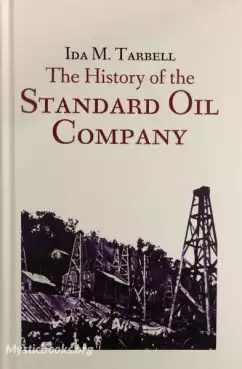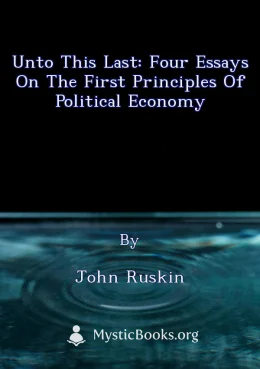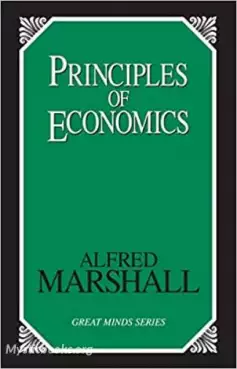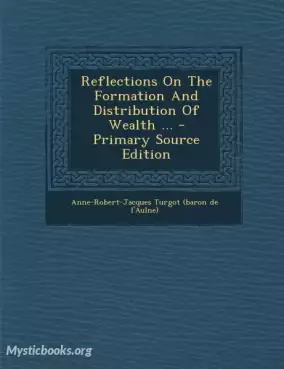
The Wealth of Nations, Book 2
by Adam Smith
'The Wealth of Nations, Book 2' Summary
Book II: Of the Nature, Accumulation, and Employment of Stock
Of the Division of Stock:
When the stock which a man possesses is no more than sufficient to maintain him for a few days or a few weeks, he seldom thinks of deriving any revenue from it. He consumes it as sparingly as he can, and endeavours by his labour to acquire something which may supply its place before it be consumed altogether. His revenue is, in this case, derived from his labour only. This is the state of the greater part of the labouring poor in all countries.
But when he possesses stock sufficient to maintain him for months or years, he naturally endeavours to derive a revenue from the greater part of it; reserving only so much for his immediate consumption as may maintain him till this revenue begins to come in. His whole stock, therefore, is distinguished into two parts. That part which, he expects, is to afford him this revenue, is called his capital.
Of Money Considered as a particular Branch of the General Stock of the Society:
"From references of the first book, that the price of the greater part of commodities resolves itself into three parts, of which one pays the wages of the labour, another the profits of the stock, and a third the rent of the land which had been employed in producing and bringing them to market: that there are, indeed, some commodities of which the price is made up of two of those parts only, the wages of labour, and the profits of stock: and a very few in which it consists altogether in one, the wages of labour: but that the price of every commodity necessarily resolves itself into some one, or other, or all of these three parts; every part of it which goes neither to rent nor to wages, being necessarily profit to somebody."
Of the Accumulation of Capital, or of Productive and Unproductive Labour:
"One sort of labour adds to the value of the subject upon which it is bestowed: there is another which has no such effect. The former, as it produces a value, may be called productive; the latter, unproductive labour. Thus the labour of a manufacturer adds, generally, to the value of the materials which he works upon, that of his own maintenance, and of his master's profit. The labour of a menial servant, on the contrary, adds to the value of nothing."
Of Stock Lent at Interest:
"The stock which is lent at interest is always considered as a capital by the lender. He expects that in due time it is to be restored to him, and that in the meantime the borrower is to pay him a certain annual rent for the use of it. The borrower may use it either as a capital, or as a stock reserved for immediate consumption. If he uses it as a capital, he employs it in the maintenance of productive labourers, who reproduce the value with a profit. He can, in this case, both restore the capital and pay the interest without alienating or encroaching upon any other source of revenue. If he uses it as a stock reserved for immediate consumption, he acts the part of a prodigal, and dissipates in the maintenance of the idle what was destined for the support of the industrious. He can, in this case, neither restore the capital nor pay the interest without either alienating or encroaching upon some other source of revenue, such as the property or the rent of land."
The stock which is lent at interest is, no doubt, occasionally employed in both these ways, but in the former much more frequently than in the latter."
Of the different employment of Capital:
"A capital may be employed in four different ways; either, first, in procuring the rude produce annually required for the use and consumption of the society; or, secondly, in manufacturing and preparing that rude produce for immediate use and consumption; or, thirdly in transporting either the rude or manufactured produce from the places where they abound to those where they are wanted; or, lastly, in dividing particular portions of either into such small parcels as suit the occasional demands of those who want them."
Book Details
Language
EnglishOriginal Language
EnglishPublished In
1776Authors

Adam Smith
Scotland
Adam Smith was a Scottish economist, philosopher as well as a moral philosopher, a pioneer of political economy, and a key figure during the Scottish Enlightenment, also known as ''The Father of Econo...
Books by Adam SmithDownload eBooks
Listen/Download Audiobook
- Select Speed
Related books

The History of Standard Oil: Volume 1 by Ida Tarbell
The History of the Standard Oil Company is a 1904 book by journalist Ida Tarbell. It is an exposé about the Standard Oil Company, run at the time by o...

Unto this Last: Four Essays on the First Principles of Political Economy by John Ruskin
John Ruskin (1819 – 1900) is best known for his work as an art critic and social critic, but is remembered as an author, poet and artist as well. Unto...

Arroyo by Élisée Reclus
This book is a poetic and philosophical exploration of the natural world, following the journey of a single stream as it flows through various landsca...

Favole di Jean de La Fontaine: Libro 03 by Jean de La Fontaine
Nei 12 volumi delle "Favole" (1669 - 1693) Jean de La Fontaine rinnovò la tradizione esopica, rappresentando la commedia umana. Quest'opera dimostrò i...

Favole di Jean de La Fontaine: Libro 04 by Jean de La Fontaine
Nei 12 volumi delle "Favole" (1669 - 1693) Jean de La Fontaine rinnovò la tradizione esopica, rappresentando la commedia umana. Quest'opera dimostrò i...

Honey-Bee by Anatole France
This captivating tale takes readers on a remarkable exploration of intellectual curiosity, societal norms, and the power of human connection. Anatole...

Principles of Economics, Book 6: The Distribution of National Income by Alfred Marshall
Principles of Economics was a leading economics textbook of Alfred Marshall (1842-1924), first published in 1890. Marshall began writing the Principle...

論語 Lun Yu (Analects of Confucius) by Confucius 孔子
孔子(公元前551年9月28日-前479年),子姓孔氏,名丘,字仲尼,鲁(今中國山东曲阜)人,中国春秋末期的思想家和教育家。孔子是中华文化中的核心学说儒家的首...

Reflections on the Formation and Distribution of Wealth by Anne Robert Jacques Turgot
The main treatise of M Turgot, early proponent of economic liberalism and a foundational thinker in study of political economy.

vie des abeilles by Maurice Maeterlinck
Maurice Maeterlinck's *Vie des Abeilles* is a fascinating exploration of the intricate world of bees. Combining scientific observation with philosoph...
Reviews for The Wealth of Nations, Book 2
No reviews posted or approved, yet...